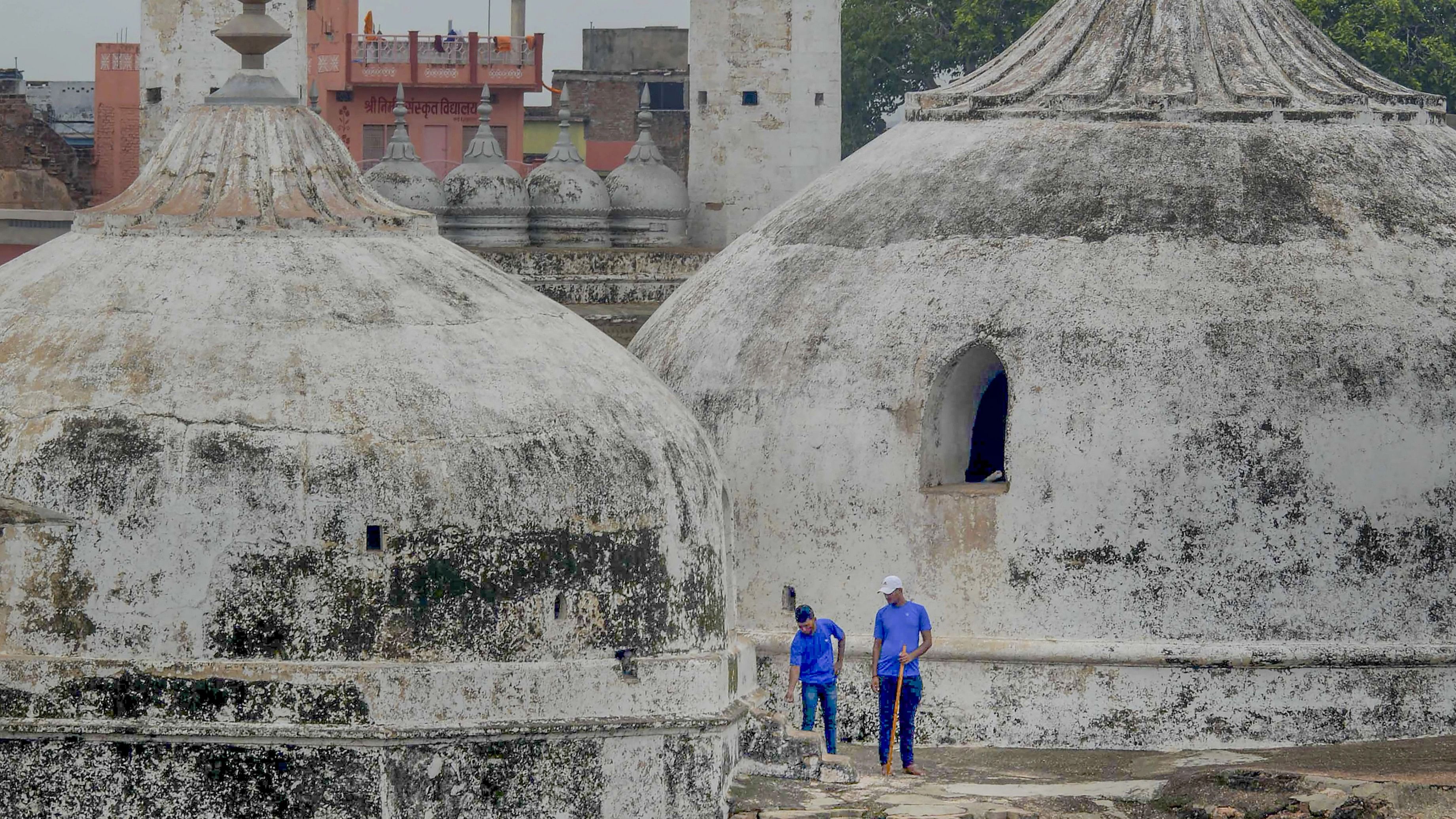
Archaeological Survey of India (ASI) team members during scientific survey at the Gyanvapi mosque complex.
Credit: PTI Photo
The Archaeological Survey of India (ASI), which was conducting a scientific survey of the contentious Gyanvapi Mosque premises in Varanasi, on Saturday moved a district court seeking more time to submit the survey report.
According to the lawyers of the litigants, the ASI moved an application before the additional district judge (I) Sanjeev Sinha seeking eight week's time to submit the report of the scientific survey.
The ASI's application was likely to come up for hearing in the court on Monday. The district court in Varanasi had directed the ASI to conduct a scientific survey of the premises and submit its report by Saturday.
The ASI, during the scientific survey, which had started on August 4, used ground penetrating radar and other scientific instruments to ascertain what lies beneath the surface of the Gyanvapi Mosque premises. The ASI team also surveyed the inner and outer walls, the cellar and other parts of the premises barring the 'wuzukhana' (the place where the Muslims wash themselves before proceeding to offer prayers).
The survey of the Gyanvapi Mosque premises began after the Allahabad High Court rejected the petition filed by the Muslim litigants seeking a stay on the Varanasi court's order for a scientific survey by the ASI.
The premises had been a bone of contention between the two communities for the past several decades but there was renewed clamor to ''take back'' the Kashi Vishwanath Temple premises by the saffron outfits after the favourable decision of the apex court in the Ram Temple case.
The Hindu petitioners contended that a part of the temple had been demolished by the Mughal emperor Aurangzeb in the 17th century. The Muslim side contended that the Mosque existed before the reign of Aurangzeb and also claimed that the same had also been mentioned in the land records.